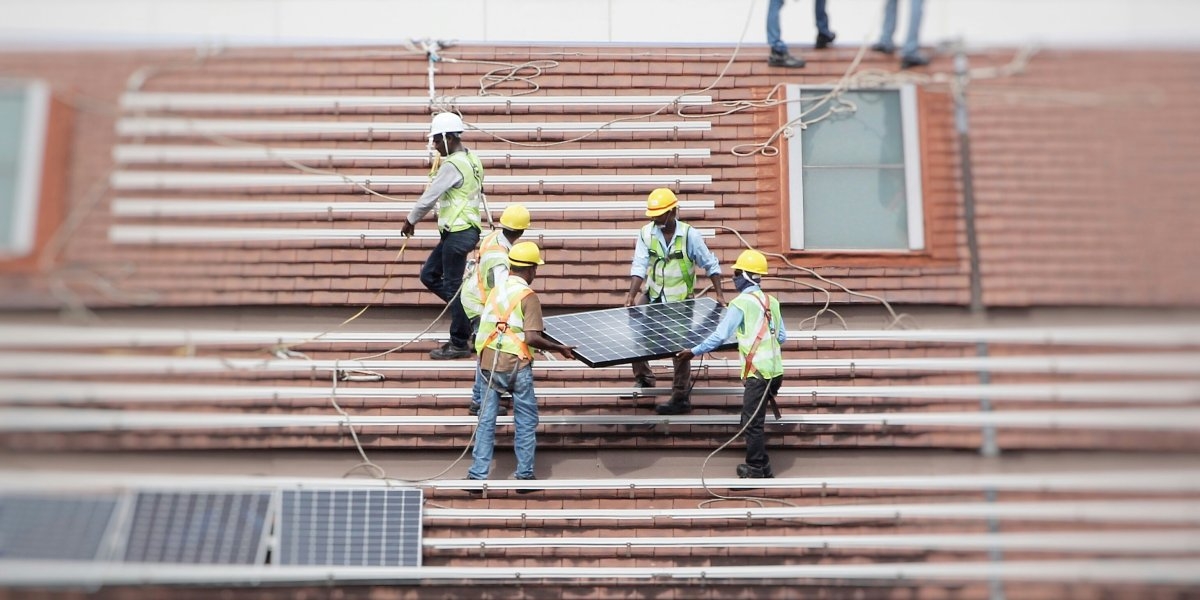Photo: Justin Lim by Unsplash
The potential of off-grid solar power is underestimated
The role of solar power (PV) as the best option for meeting the electricity access gap in Africa is underestimated. Carbon pricing and system reliability impacts on pathways to universal electricity access, according to a new study.
There is still a considerable gap in the rate of improving electricity access to meet the UN Sustainable Development Goal 7 on energy access for all. Unless progress is substantially accelerated, more than 400 million people could still be without access in Africa in 2030. The reliability of existing and new connection is a problem that reduce the value of electricity access.
Costs of poor reliability and carbon pricing
Could carbon pricing schemes or access to carbon credits for those working to expand access help additional households with electricity access via solar power? In a new study recently published in Nature Communications, the researchers from Imperial College London and CICERO use new techniques to demonstrate how the costs of poor reliability and carbon pricing influence the uptake of small-scale solar across sub-Saharan Africa.
“When considering the costs associated with poor reliability, off-grid PV (photovoltaic) systems emerge as the optimal choice for an additional 80 million people under the Tier 3 demand scenario, assuming that people have higher capacity and longer duration energy supply”, says senior researcher at CICERO Shivika Mittal, one of the authors behind the study. The findings are also relevant for other parts of the world such as India where many people are still not connected to the grid.
Global dataset on rooftop area for PV
Mittal has also taken part in another study that has assessed the current and future growth in the global rooftop area, knowledge that is important for understanding and planning for a robust and sustainable decentralised energy system.
“The dataset is relevant for companies and others investing in solar PV rooftop technology as it gives the estimates about the rooftop space that might be available for installation of solar panels across the globe”, says Mittal, one of the researchers behind the study.
The new global dataset on “rooftop area” was published recently in Nature Portfolio Scientific Data by researchers from the International Institute for Applied Systems Analysis (IIASA), University College Cork, CICERO, Global Centre for Environment and Energy in India, and Centre for Energy Climate and Marine. They have used machine learning to generate globally harmonized estimates of growth in rooftop areas for the period 2020-2050.
This single harmonised global dataset can be used for climate change, energy transition, biodiversity, urban planning, and disaster risk management studies.
The data ca be downloaded for any country/world region here: Global high-resolution growth projections dataset for rooftop area consistent with the shared socioeconomic pathways, 2020-2050. (zenodo.org)
The paper Global high-resolution growth projections dataset for rooftop area consistent with the shared socioeconomic pathways, 2020–2050 was published in Nature Portfolio Scientific Data.
The paper Carbon pricing and system reliability impacts on pathways to universal electricity access in Africa led by Dr. Hamish Beath was published in Nature Communications.
References
Beath, H., Mittal, S., Few, S. et al. Carbon pricing and system reliability impacts on pathways to universal electricity access in Africa. Nat Commun 15, 4172 (2024). https://doi.org/10.1038/s41467-024-48450-7
Joshi, S., Zakeri, B., Mittal, S. et al. Global high-resolution growth projections dataset for rooftop area consistent with the shared socioeconomic pathways, 2020–2050. Sci Data 11, 563 (2024). https://doi.org/10.1038/s41597-024-03378-x
